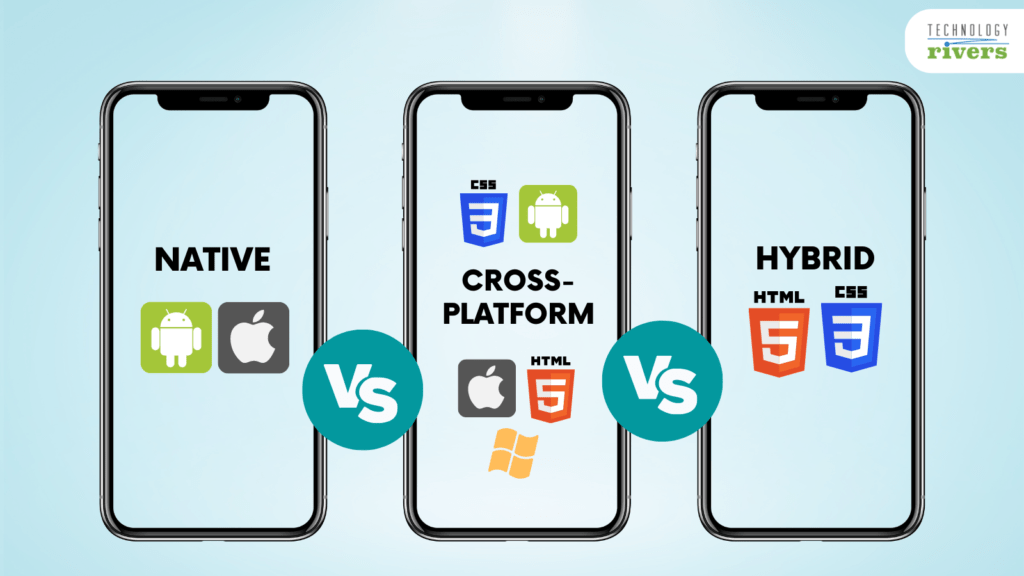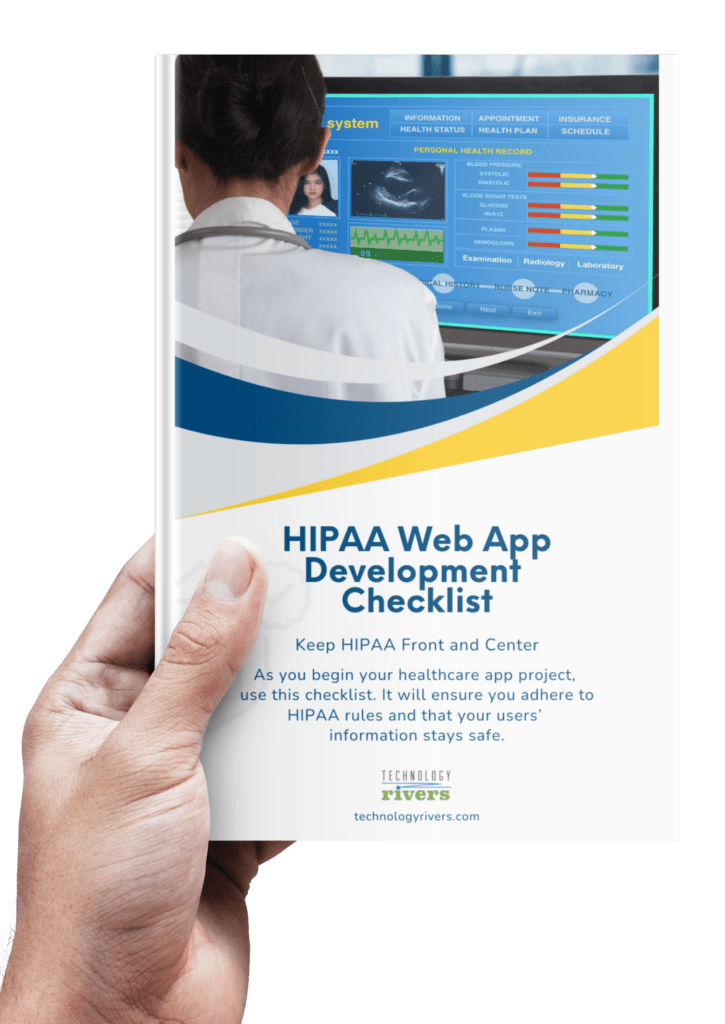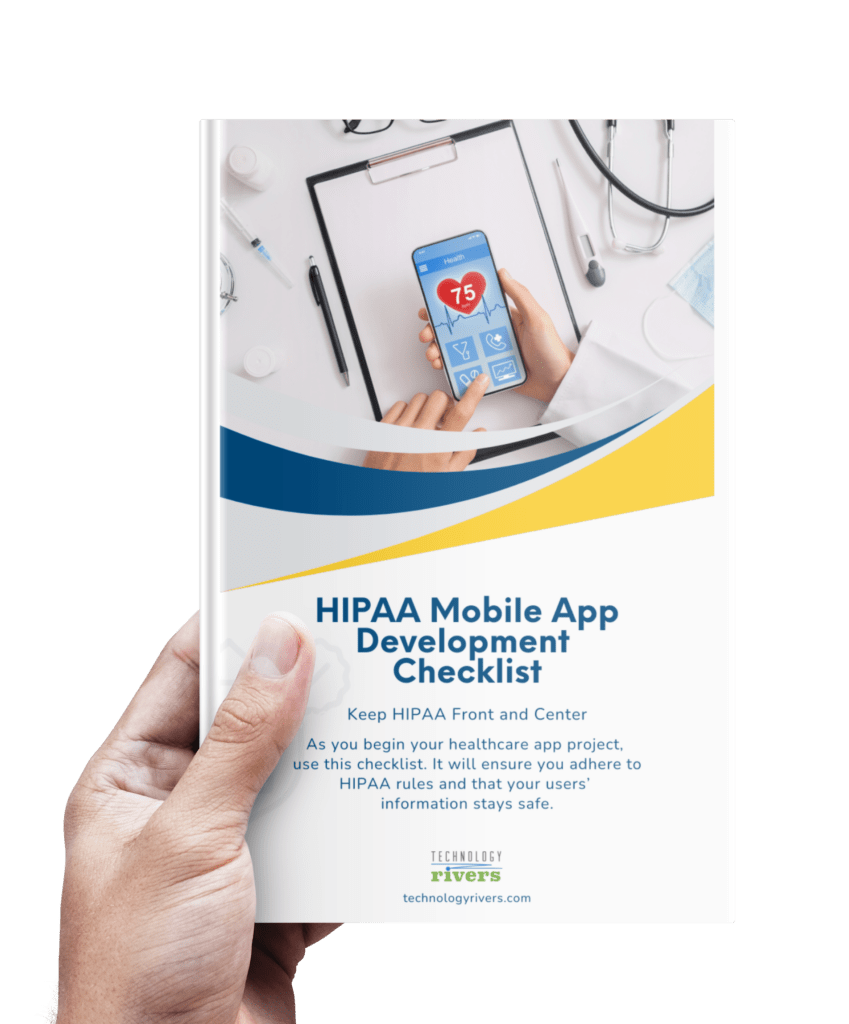Blogs » Native vs Cross-Platform vs Hybrid Mobile Apps for Startups
Table of Contents
When it comes to launching a successful startup, having an effective mobile app is essential. But with so many types of mobile apps out there, it can be hard to decide which type is right for your business. To make matters more complicated, different types of mobile apps have different strengths and weaknesses. In this blog post, we’ll explain the differences between native, cross-platform, and hybrid mobile apps so that you can make an informed decision about which type is best for your startup.
Native Mobile App Development
Native mobile apps are built using programming languages and tools specific to a particular platform such as iOS or Android. They are designed to take full advantage of the device’s features and capabilities, providing the best performance and user experience. The code is optimized for the specific platform, leading to faster and smoother performance, and a more responsive user interface.
Since native mobile apps are built for a specific platform, they are able to access all of the device’s features, including the camera, microphone, notifications, and sharing options. This allows developers to create apps that are highly interactive and responsive, providing users with a more complete and engaging experience.
Pros
- Improved user experience: Native apps offer a more streamlined and intuitive user experience compared to hybrid or web-based apps. This is because native apps are specifically designed for a particular platform and take advantage of the device’s features and capabilities.
- Faster performance: Native apps have the ability to work offline, which provides a much faster and smoother performance compared to web-based apps that require an internet connection.
- Better access to device features: Native apps have full access to a device’s capabilities and hardware, such as the camera and GPS, allowing for more innovative and engaging experiences.
- High security: Native apps offer a higher level of security compared to other types of mobile apps as they are stored on the device and are less vulnerable to hacking and malware attacks.
Cons
- High development costs: Developing native apps can be more expensive compared to other types of mobile app development, as it requires the development of separate versions for each platform.
- Longer development time: Native app development typically takes longer than other types of mobile app development, as it requires the development of separate versions for each platform.
- Platform-specific limitations: Native apps are limited to a specific platform, which means that users must have the appropriate device to run the app. This can limit the reach of the app and reduce its potential audience.
- Maintenance and updating challenges: Maintaining and updating native apps can be more complex and time-consuming compared to other types of mobile apps, as it requires the development of separate updates for each platform.

Native mobile apps are considered the best option for performance, user experience, and full access to the device’s features but also it may be costly and time-consuming. It’s important to weigh the pros and cons of native mobile apps and consider whether the extra cost and development time are worth it for your specific project.
Cross-Platform Mobile App Development
Cross-platform mobile apps are coded in languages that can run on multiple platforms—typically HTML5/JavaScript/CSS3 or C# with Xamarin. Cross-platform apps allow developers to write code once and then deploy it across multiple platforms without having to rewrite the code from scratch. This makes them ideal for startups who want to get their product out quickly without having to invest time and money into developing separate versions of their app for each platform. The downside is that cross-platform applications often lack access to certain device features—such as camera or GPS—or don’t perform as well as native applications due to compatibility issues or slower rendering times.
Pros
- Cost-effective: Cross-platform app development allows developers to write code once and then deploy it on multiple platforms, reducing the cost and time required to develop separate versions for each platform.
- Faster time-to-market: Cross-platform app development enables developers to launch an app on multiple platforms simultaneously, reducing the time it takes to reach a wider audience.
- Consistent user experience: Cross-platform app development allows for a consistent user experience across different platforms, reducing confusion for users and making it easier for them to transition between devices.
- Larger reach: Cross-platform app development enables businesses to reach a larger audience, as the app can be made available to users on multiple platforms.

Cons
- Performance issues: Cross-platform apps can sometimes suffer from performance issues compared to native apps, as they are not optimized for a specific platform.
- Limited access to platform-specific features: Cross-platform apps may not have full access to the features and capabilities of a specific platform, as they are designed to run on multiple platforms.
- Complex development process: Cross-platform app development can be more complex compared to native app development, as developers must ensure that the app works seamlessly on multiple platforms.
- Maintenance challenges: Cross-platform apps may require more maintenance compared to native apps, as developers must ensure that the app continues to work properly on multiple platforms.
Cross-platform mobile app development offers a number of benefits, including cost-effectiveness, faster time-to-market, and a consistent user experience. However, it also comes with some challenges, including performance issues, limited access to platform-specific features, a complex development process, and maintenance challenges. When deciding on the best approach for your mobile app development project, it’s important to carefully consider the pros and cons of each approach and choose the one that best fits your needs and goals.
Hybrid Mobile Apps
Hybrid mobile apps are essentially web applications that are packaged into a native wrapper — meaning they combine elements from both native and cross-platform applications. Hybrid apps run inside a web browser control but still look like traditional native applications thanks to their use of HTML5/CSS3/JavaScript coding languages (as opposed to Objective-C or Java). This makes them ideal for startups who want an app that performs like a native application but also has access to certain device features, like the camera, at an affordable price point since hybrid apps require less development effort than fully native ones do. The downside is that hybrid applications may not always look quite as good as fully native ones and may not perform quite as well either due to compatibility issues between the web browser control and some device features (such as GPS).

Pros
- Cross-platform compatibility: Hybrid apps can run on multiple platforms, including iOS and Android, with a single codebase. This saves time and money compared to developing separate native apps for each platform.
- Fast development time: Hybrid apps can be developed faster than native apps because the same code can be reused across multiple platforms.
- Access to native device features: Hybrid apps have access to native device features, such as camera, GPS, and accelerometer, through the use of plugins.
- Cost-efficient: Developing a hybrid app is typically less expensive than developing native apps for multiple platforms.
Cons
- Performance issues: Hybrid apps can sometimes suffer from performance issues, such as slow loading times and limited access to device resources.
- Dependence on third-party plugins: Hybrid apps often rely on third-party plugins to access native device features, which can increase the risk of compatibility issues.
- User experience: Hybrid apps may not offer the same level of user experience as native apps, as they can sometimes feel clunky or sluggish.
- Design limitations: Hybrid apps may have limitations in design, as they are often limited by the design elements and features offered by the framework they are built on.
Hybrid mobile app development is a good choice for businesses looking to build a mobile app quickly and affordably, with access to native device features. However, it’s important to consider the potential performance issues and limitations in design that may arise. Ultimately, the best choice will depend on the specific needs of the business and the goals of the mobile app.
Conclusion
In conclusion, the choice between native app development, cross-platform app development, and hybrid app development depend on the specific needs and goals of a business. Native app development provides the best user experience and performance, but it can be expensive and time-consuming. Cross-platform app development allows for cost and time savings, but it can result in a compromised user experience. Hybrid app development strikes a balance between cost, development time, and user experience, but it may have limitations in performance and design.
No matter what type of mobile app development a business chooses, it’s important to work with a trusted and experienced development partner. The right partner can help bring a business’s mobile app vision to life, with a focus on quality, reliability, and user experience.
If you’re interested in learning more about which type of mobile app development you need for your business, just reach out to us! Our team of expert developers can help you determine the best approach for your business and bring your mobile app vision to life. Don’t wait, contact us today!














